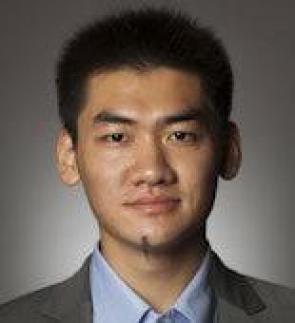
Do Law School Internships Pay? A Complete Guide to Making Money as an Intern in 2023
Law school internships can be a great way to gain experience and learn about the legal profession....
526 views
Law school internships can be a great way to gain experience and learn about the legal profession....
526 views
Open-book exams are a form of testing that allows students to consult their notes, textbooks, or other study...
283 views
Law school is a challenging and expensive journey, and many students face financial difficulties during their...
30 views
Law firms should think carefully before hiring young attorneys, as there are advantages and disadvantages....
625 views
As a tax attorney, you'll find that the niche is fairly limited but there are ways to specialize even further...
822 views
To be successful in your summer job search as a first-year law student, you need to organize your resume and...
73 views
Hiring the wrong person can set a firm back years. Associates should be well-qualified and have experience in...
20 views
While some stress is inevitable and even positive, excessive stress is taking its toll on lawyers everywhere,...
155 views
This post will focus on the current salary data for several major west coast cities and give you helpful,...
46 views
Our world is changing at breakneck speed, so we've put up this collection of the top legal industry trends for...
9 views
For graduates fresh out of law school, you must know what paying positions exist before committing yourself to...
11411 views
What does it take to be happy as a lawyer; The law can be overwhelming, especially for new attorneys who...
50 views
In 2024, law firms across the nation are reassessing their compensation structures to stay competitive and...
5957 viewsSummary: Arian Jabbary is a 1L currently attending Cardozo School of Law and plans on graduating in Spring...
583 views
Summary: Yixiao Wang received his Bachelor of Law in July 2013 from Renmin University of China, Law School,...
354 viewsSummary: The annual U.S. News & World Report is in, as of March 10, and law schools deans can cease biting...
2896 viewsSummary: There are many factors to consider when evaluating an offer. It is important to take the time to make...
736 views
Summary: When deciding to apply to a firm, there are a number of factors to consider. How many should you...
275 views
Summary: I am just finishing up a Ph.D. program, and I think I want to be a patent agent. What advice do you...
5377 views
Summary: When you have a major career issue, such as a potential need to change jobs, what should you do? You...
259 views
Summary: David Tierney is a third-year law student at the UCLA School of Law and anticipates a May 2015...
186 viewsSummary: I've been disappointed by my first year of private practice. The work is disheartening and narrow....
71 viewsPersonal Life J. Drew Knapic is a third year law student at Massachusetts School of Law and anticipates a...
284 viewsSummary: Chad Rubin is a third-year law student at the Florida State University College of Law and anticipates...
163 viewsSummary: I'm a practicing lawyer with two young kids and finding time for them is a challenge. How can I...
43 viewsPersonal Life Robert Parker is a first year law student at the Lewis & Clark College of Law and anticipates...
394 views
Summary: This is a great question. There are many factors that impact a candidate’s ability to lateral from...
273 views
Summary: The law school mystique—that is, thinking of law school as phenomenally difficult, utterly...
59 views
Summary: After you’ve “thunk the thought,” it’s time to physically take care of everything within your...
51 viewsSummary: John R. Andrew is a third-year law student at University of Tulsa College of Law and anticipates a...
103 views